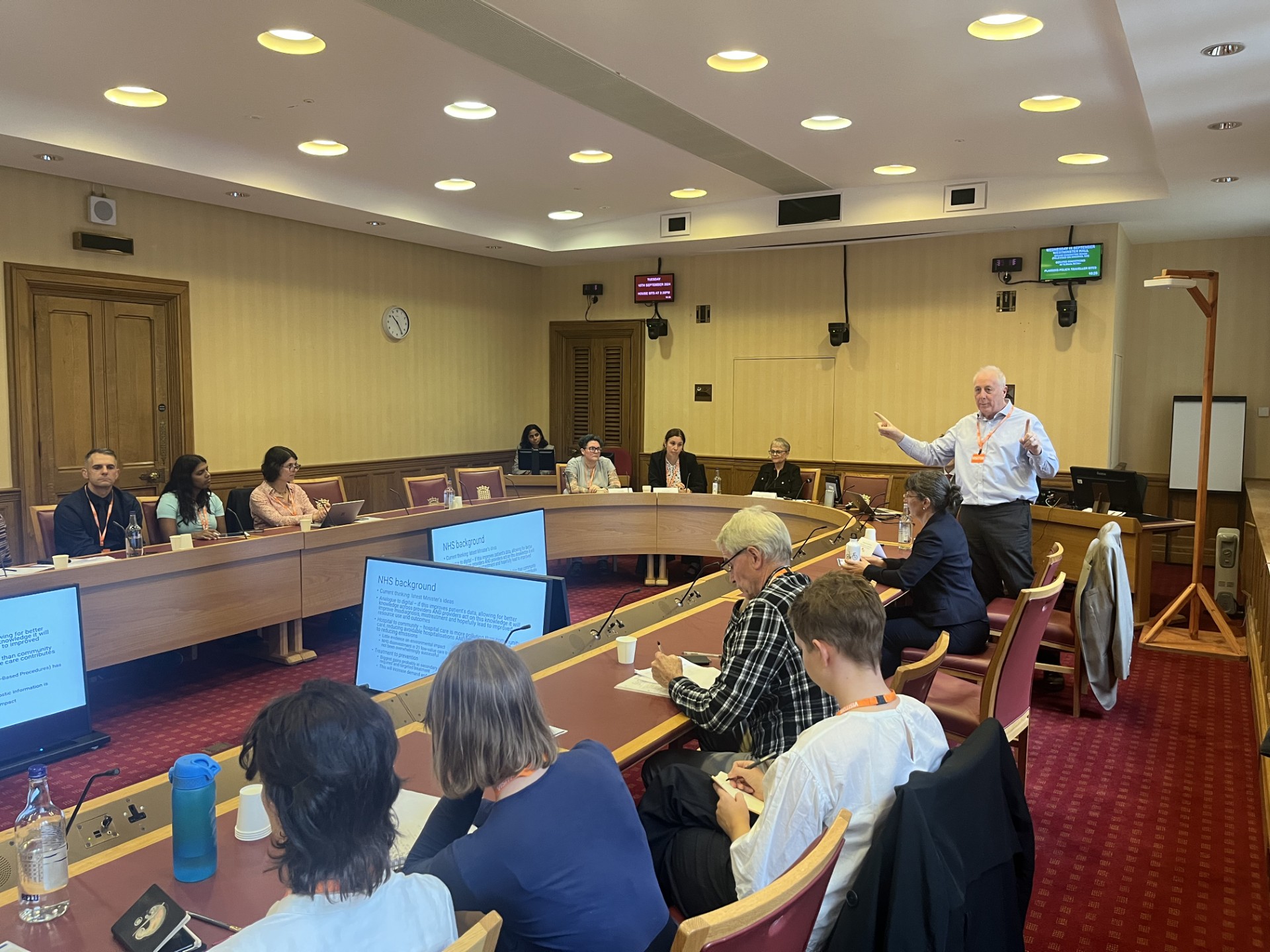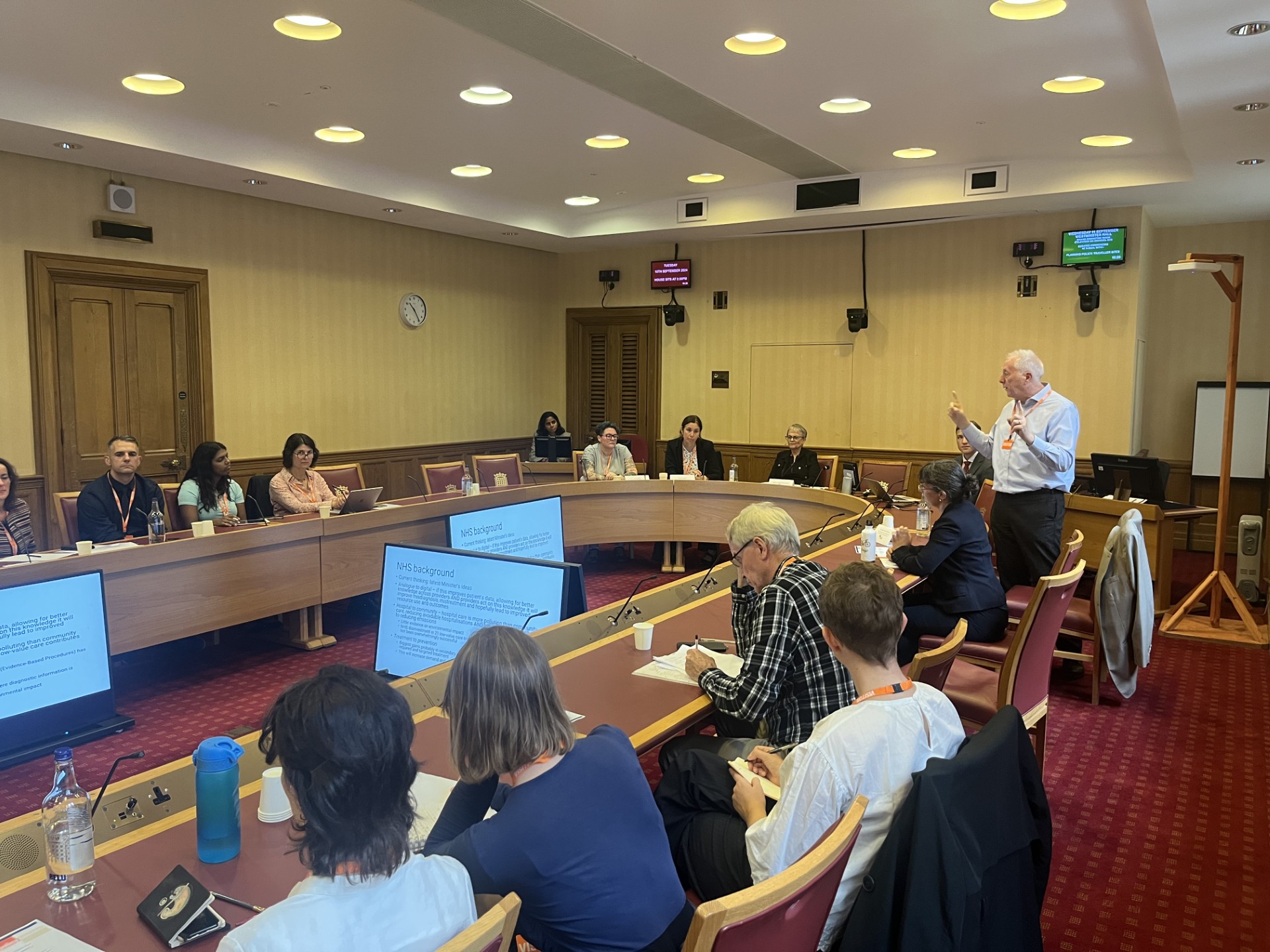Professor Alistair McGuire from the department, recently addressed the Sustainability in Health Summit held at the House of Lords in Westminster.
The event, organised by Policy Connect's Sustainability and Health teams and chaired by Labour Peer Baroness Margaret Ritchie, brought together parliamentarians, NHS providers, healthcare leaders, and government policymakers to discuss key issues surrounding the sustainable use of natural and medical resources in healthcare.

With the UK government formulating a new 10-year healthcare strategy, the summit provided a timely platform to explore how sustainability can be embedded within the sector while maintaining high-quality care for current and future generations. The event focused on addressing the growing challenge of resource consumption and waste in healthcare, which is exacerbated by increasing demand.
In his address, Professor McGuire emphasised the need for medical resource efficiency and health system resilience. Drawing upon research from the Partnership for Health System Sustainability and Resilience (PHSSR), he explained how healthcare systems contribute significantly to global emissions—4.4% of global net emissions—and stressed the importance of reducing this footprint through better management of resources and disease outcomes.
Professor McGuire presented evidence-based recommendations from the PHSSR's research in 18 countries, focusing on several key areas:
- Reducing avoidable hospitalisations and improving disease management to prevent unnecessary strain on the system.
- Mapping and measuring the carbon footprint of healthcare activities to identify reduction opportunities, particularly in the supply chain, which is responsible for nearly 75% of healthcare-related emissions.
- Collaborating with suppliers to reduce carbon consumption and waste.
- Investing in workforce education and training to equip healthcare professionals with the skills needed to respond to climate and other crises while minimising environmental impacts.
He also discussed the NHS's environmental targets, highlighting its ambition to achieve net zero carbon emissions by 2040 for direct inputs (e.g., anaesthetic gases, energy usage) and by 2045 for broader supply chain activities. Professor McGuire pointed out the challenges in meeting these targets, noting that while the NHS has made strides in areas such as procurement, more ambitious measures are needed to reduce emissions to the specified targets. It is also important to track the impact that increased regulatory costs have on procurement prices.
Two key strategies were highlighted:
- Cutting low-value care: Professor McGuire discussed the significant impact of low-value care on both resource use and emissions, and how eliminating these practices can improve sustainability. He cited an example from the NHS's disinvestment in 21 low-value care treatments, noting that while progress has been made, further efforts are needed to optimise care delivery.
- Shifting care from hospitals to communities: Reducing avoidable hospitalisations and providing more care in community settings not only improves patient outcomes but also reduces the environmental footprint of healthcare services, as hospital care is more polluting.
Throughout his presentation, Professor McGuire emphasised that integrating environmental concerns into healthcare policy and practice is crucial. However, he acknowledged that this is a complex task, as healthcare systems must balance environmental goals with other pressing priorities, such as addressing inequalities in care and managing financial constraints.

Other prominent speakers included Dr Karen Mayor, lead of the Department of Health and Social Care's Design for Life initiative, and Heidi Barnard, Head of Sustainability at NHS Supply Chain, who shared insights into how sustainability can be integrated into healthcare operations.
The event concluded with a panel discussion involving NHS leaders, royal colleges, and other stakeholders, which will help to inform Policy Connect's upcoming work on embedding a sustainable approach to healthcare through policy.